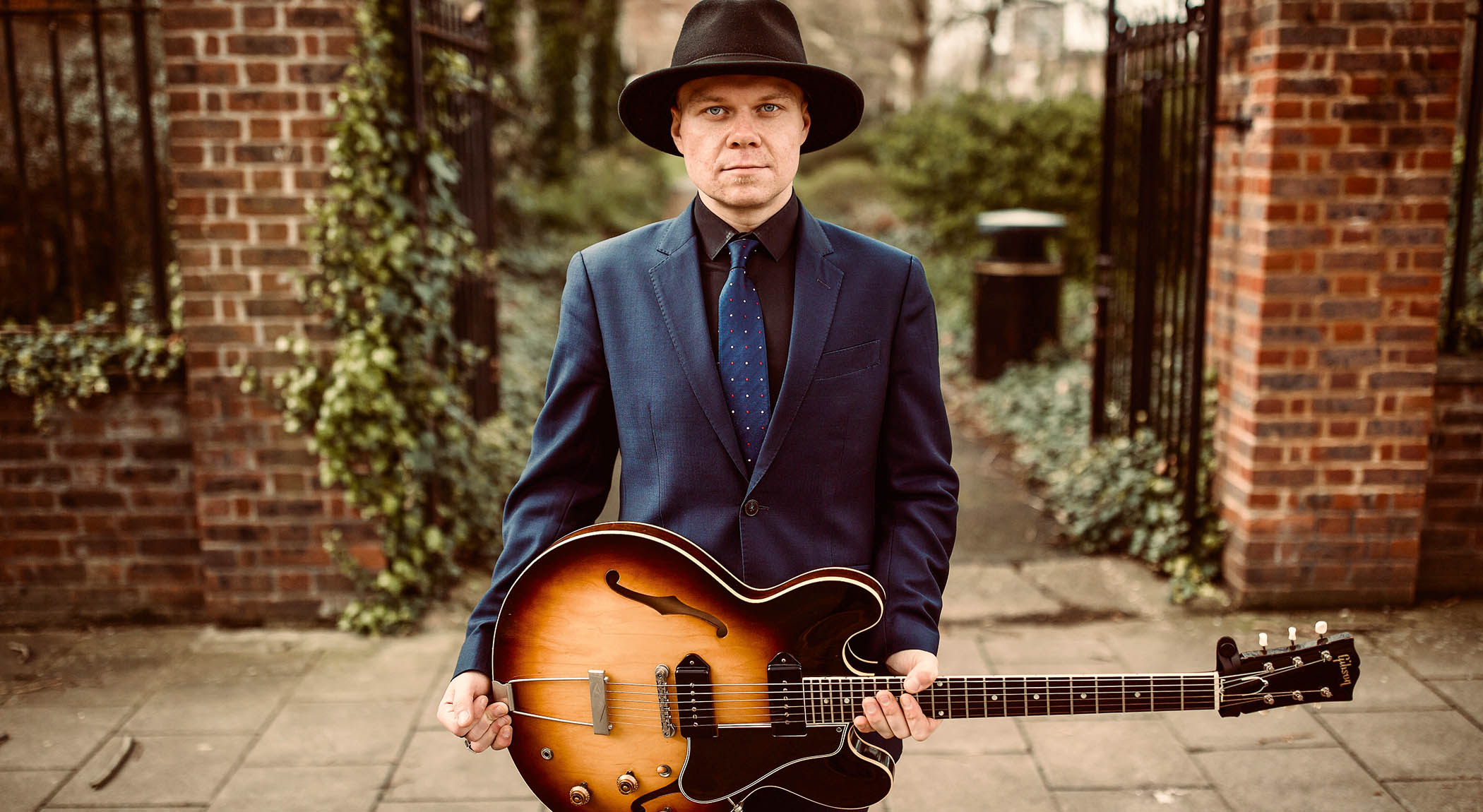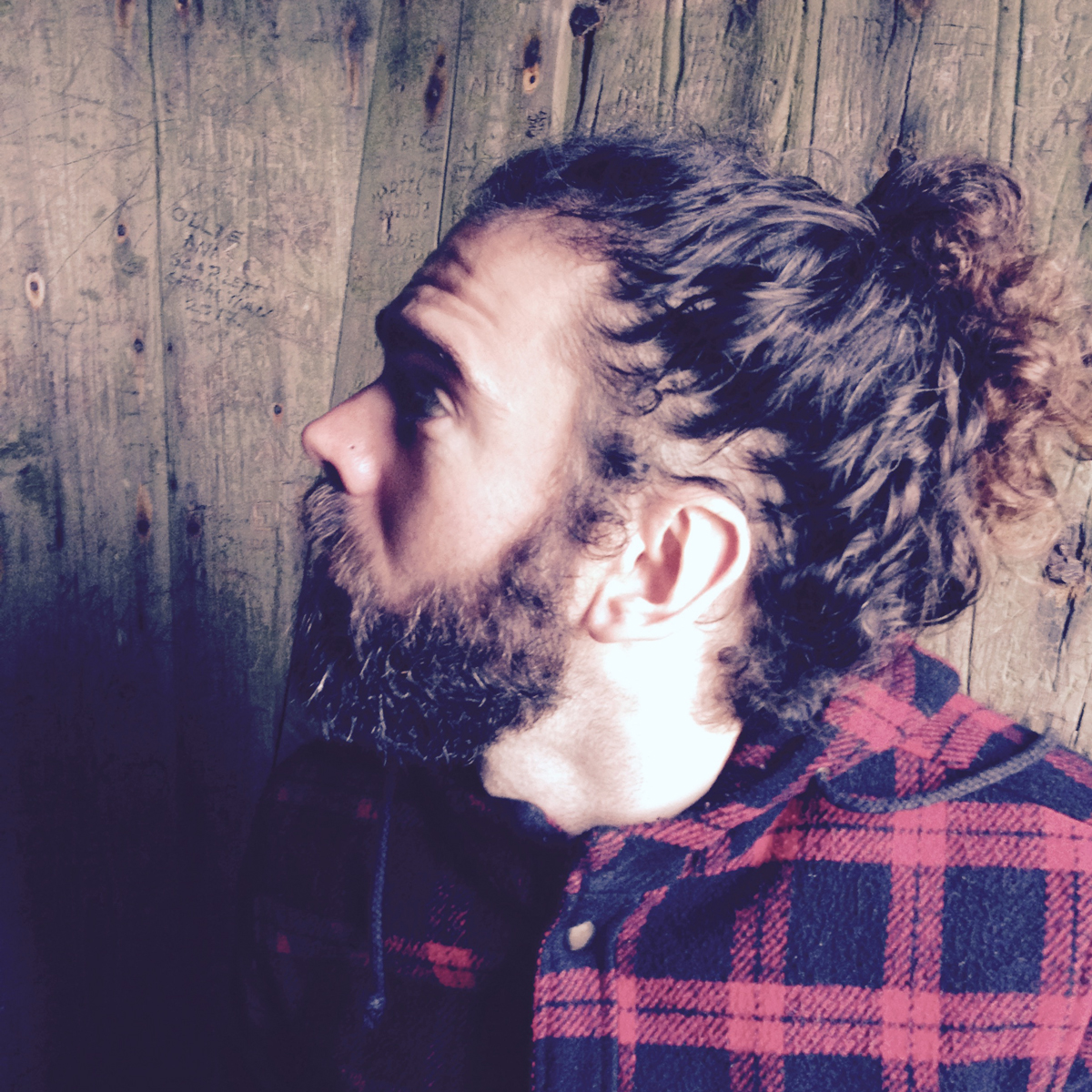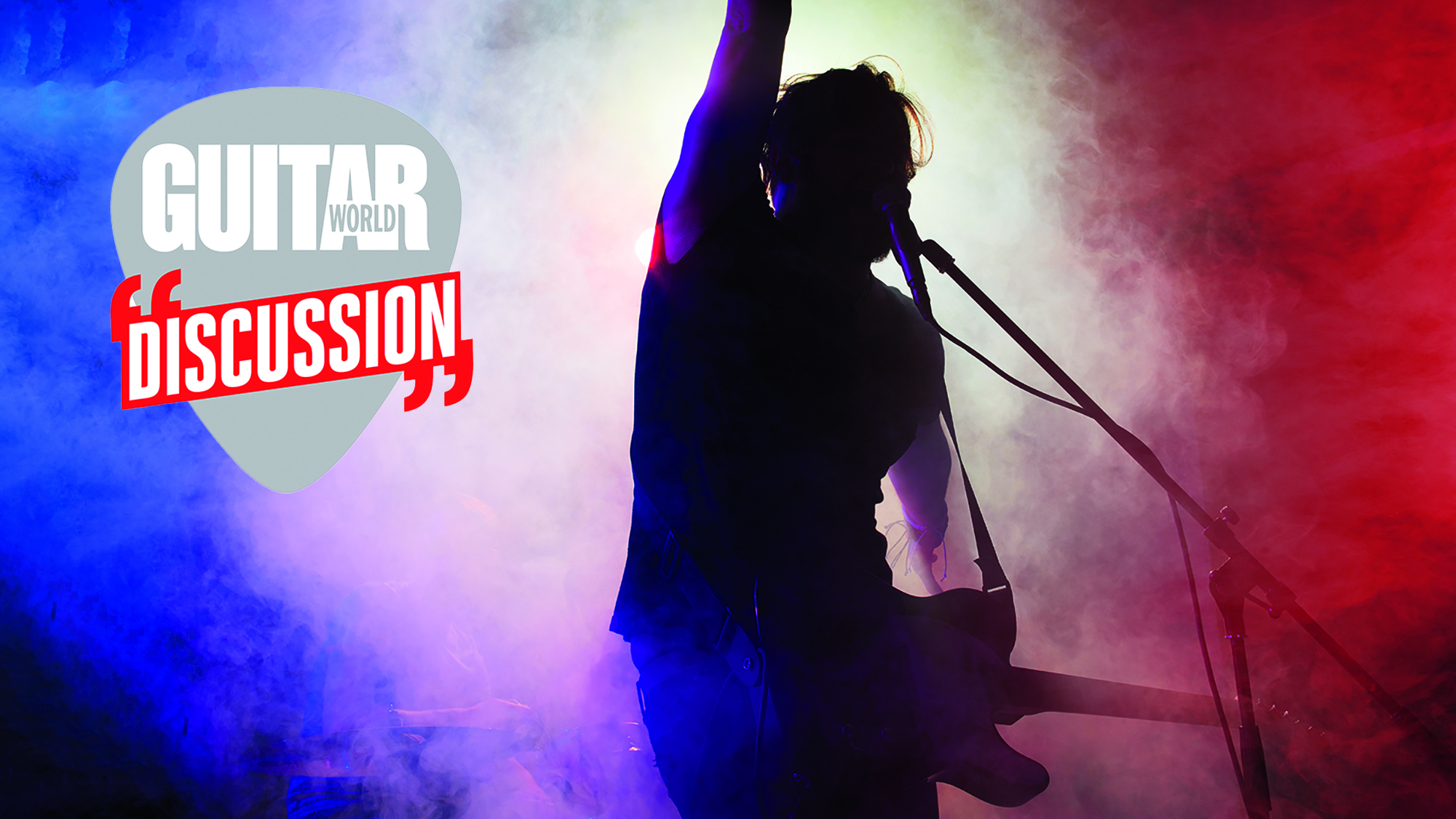“The guitar can be your best friend one day and your rival the next – it keeps you on your toes”: London jazz ace Artie Zaitz on why the amp is your second instrument and how he learned to love mistakes
Zaitz's debut album, The Regulator, introduces a prodigious talent on guitar, and he is backed by some of the best players in the capital's jazz scene

Artie Zaitz is a jazz guitarist and Hammond organ player from London who is already a mainstay on the jazz scene at the age of 30.
With his father, Jake Zaitz, himself an established blues guitarist, Artie was exposed to blues and jazz music from an early age, and became influenced by the mid-’60s soul jazz organ/guitar trios associated with the New York Chitlin circuit.
Artie’s debut album as bandleader, The Regulator, is a six-track affair that celebrates the analogue sounds of that ’60s style, along with added percussion.
Friend & Foe
Artie’s smooth, articulate playing on The Regulator and his other projects demonstrates how much respect he has for his six-string.
“The guitar is my main instrument,” he says. “I’m the most fluent and fluid on it, I would say. My father is a guitarist and he took it upon himself to teach me a lot of blues and some jazz. I got really into it by osmosis. The guitar is so worldwide and has so many avenues to explore. It can sing and it cuts through all genres.
“It’s a beautiful thing and can be your best friend one day and your rival the next, so it keeps you on your toes. I’ve geeked out about it for a long time, through tones and all the different things you can get into. It’s never ending, really.”
Electric Shock
When Artie talks about the players who have influenced his playing and music over the years, names such as B.B. King, T-Bone Walker, Grant Green and John Scofield are mentioned.
Get The Pick Newsletter
All the latest guitar news, interviews, lessons, reviews, deals and more, direct to your inbox!
“I’m primarily an electric guitarist,” he says, “a single-note player, although I love playing chords. [The electric] has that tone and projection. I consider the amplifier as a second instrument, too, because you have to match them well for an ideal situation. When you get one that really works for you and can sing, then it’s quite a beautiful thing.
’I also love the unpredictability of playing an electric guitar; that can be fun.”
In the Studio
Artie explains his guitar and amp setup: “The main axe I use for jazz is a 1960 Gibson ES-330,” he says. “But I also use a Fender Telecaster that I got when I was 14 and that’s my main one for anything, really. I’ve put flat‑wounds on it now, so I can use it for jazz, too. It’s a ’62 Japanese reissue, which has really good woods; they make the best reissue guitars.
“I borrowed an amp when we were recording the album,” he adds, “a 1957 Fender Tweed Deluxe, and I used the studio’s Fender spring tank for reverb. But what I use mostly is a Fender Excelsior, which are these limited‑edition reissue amps and they’re great. Just 13 watts, 15-inch speaker – it’s got a lot of power. I use that or a Fender Princeton Reverb, generally.”
Live Action
Artie is a self-confessed stickler for sound, so it was important to him to record The Regulator in as live a setting as possible.
“Yeah, all in the same room, too, which is starting to become less common,” he says. “For me, it’s the best way to really feel the band in the moment, like a live situation. The closer you are to the musicians, the more you can pick up. When you start separating things, it’s just never going to be the same. It feels more organic.”
And the mistakes? “I do love mistakes,” he smiles. “You come to admire them, and mistakes are prevalent in so much of the music we love. It just shows that we’re human. If the vibe is great, that’s what you go for.”
Do the Conga: Artie assembled his band from the pick of London’s jazz scene players
When it came to making his album, Artie was keen to give the traditional organ-trio albums a twist, and brought together a band comprising Ross Stanley on Hammond C3, Steve Brown on drums and David Pattman on conga (Cuban drum).
“I wanted to capture the sound of that band at that time,” he says, “but I also tried to keep the spirit of soul-jazz organ combos. That combo is all encompassing: you can play funk, jazz, blues, soul tunes, Latin, especially with the conga. And I love the conga, it takes it up a notch for me and takes it past that regular organ trio. It brought a new dimension to the sound.”
- The Regulator is out now via Banger Factory.
Glenn Kimpton is a freelance writer based in the west of England. His interest in English folk music came through players like Chris Wood and Martin Carthy, who also steered him towards alternate guitar tunings. From there, the solo acoustic instrumental genre, sometimes called American Primitive, became more important, with guitarists like Jack Rose, Glenn Jones and Robbie Basho eventually giving way to more contemporary players like William Tyler and Nick Jonah Davis. Most recently, Glenn has focused on a more improvised and experimental side to solo acoustic playing, both through his writing and his own music, with players like Bill Orcutt and Tashi Dorji being particularly significant.
Ozzy Osbourne’s solo band has long been a proving ground for metal’s most outstanding players. From Randy Rhoads to Zakk Wylde, via Brad Gillis and Gus G, here are all the players – and nearly players – in the Osbourne saga
“I could be blazing on Instagram, and there'll still be comments like, ‘You'll never be Richie’”: The recent Bon Jovi documentary helped guitarist Phil X win over even more of the band's fans – but he still deals with some naysayers













